Summer camp field trips provide children enriching opportunities to explore new environments, engage with hands-on learning, and develop valuable social skills. These thoughtfully planned excursions support the overall goals of high-quality early childhood education by extending learning beyond the classroom. Whether visiting a local museum, nature reserve, or community organization, each field trip offers experiences that foster curiosity, build confidence, and encourage a lifelong love of discovery.
At Young Scholars Academy, every outing is designed to align with developmental milestones and educational objectives, ensuring that children remain engaged, safe, and inspired. This list highlights ten impactful field trips entertaining and supporting key learning areas.
1. Explore Nature with Outdoor Educational Trips
Outdoor educational trips are a valuable component of summer camp programming. They offer children direct exposure to the natural world while supporting physical, cognitive, and social development. These field trips provide structured opportunities for hands-on learning and exploration beyond the classroom.
Activities often include:
- Guided nature hikes that introduce children to local ecosystems, flora, and fauna
- Visits to nature centers that offer interactive exhibits and environmental education programs
- Outdoor scavenger hunts that develop observation skills and encourage teamwork
These experiences help children understand ecological relationships, develop respect for the environment, and engage with scientific concepts in real-world settings. Time spent in nature promotes emotional well-being, encourages active movement, and cultivates a sense of wonder. By participating in outdoor educational trips, children gain foundational knowledge about the natural world and build connections that support long-term environmental awareness and stewardship.
2. Build Confidence Through Youth Adventure Programs
Youth adventure programs are designed to challenge children in a supportive and structured environment, promoting self-confidence, resilience, and teamwork. These programs focus on experiential learning, where physical and mental challenges are approached through guided participation and reflection.
Common activities include:
- Ropes courses and rock climbing that encourage problem-solving and perseverance
- Group obstacle courses that emphasize collaboration and communication
- Supervised zip-lining or hiking excursions that build trust and responsibility
Participation in these field trips helps children overcome fears, set achievable goals, and celebrate accomplishments. Each activity is tailored to be age-appropriate and aligned with developmental milestones, ensuring safety and meaningful engagement. Through youth adventure programs, children learn to take initiative, support their peers, and build a strong sense of personal achievement—skills that extend well beyond the camp setting.
3. Enrich Growth with Summer Learning Experiences
Summer learning experiences offer a meaningful way to reinforce academic concepts while keeping children engaged during the break. These field trips integrate education with hands-on exploration, helping to bridge the gap between school years and support continued cognitive development.
Examples of impactful summer learning experiences include:
- Visits to science and technology museums where children can participate in interactive exhibits
- Art studio workshops that encourage creative expression through various mediums
- Explorations of historical landmarks to connect children with local and national history
These excursions are carefully selected to align with age-appropriate learning goals while fostering curiosity, critical thinking, and creativity. Exposure to new ideas and environments supports well-rounded development and helps maintain academic progress over the summer months. Engaging in educational activities outside the classroom, children remain intellectually active and develop a broader understanding of the world.
4. Discover Local Agriculture at Farm Visits
Farm visits provide children with a direct and engaging look at agricultural life. They help them understand where food comes from and how natural resources are used responsibly. Through firsthand observation and interaction, these field trips offer meaningful lessons in sustainability, biology, and healthy living.
Key components of farm visits often include:
- Touring fields and greenhouses to learn about planting, harvesting, and seasonal crops
- Feeding and caring for animals to understand basic animal husbandry and responsibility
- Participating in hands-on farming activities such as gathering eggs or planting seeds
These experiences connect children to nature and teach them the importance of local food systems. Farm visits also introduce basic environmental concepts such as composting, water conservation, and biodiversity. By engaging with agriculture in a practical setting, children develop a sense of appreciation for the work involved in food production and its role in everyday life.
5. Dive into Creativity with Performing Arts Outings
Performing arts outings expose children to a variety of artistic expressions, fostering creativity, cultural awareness, and an appreciation for the arts. These field trips are thoughtfully selected to engage young learners through observation and participation in professional, age-appropriate performances and workshops.
Typical activities during performing arts outings include:
- Attending live theater performances that introduce storytelling through drama, music, and movement
- Participating in artist-led workshops focused on acting, dance, or music fundamentals
- Exploring backstage tours that reveal the technical aspects of production
These experiences encourage children to explore new interests, express themselves confidently, and engage with the creative process. Exposure to the performing arts also supports language development, listening skills, and emotional understanding. By integrating arts into summer camp programming, children can develop their imagination, connect with diverse cultural forms, and experience the joy of artistic expression in a structured learning environment.
6. Spark Curiosity at Planetariums and Science Centers
Visits to planetariums and science centers allow children to explore scientific concepts through immersive, interactive experiences. These environments are designed to make complex topics accessible and engaging, encouraging children to ask questions, make observations, and make conclusions based on what they discover.
Highlights of these field trips often include:
- Planetarium shows that introduce astronomy, space exploration, and the solar system
- Hands-on science exhibits that explore physics, chemistry, and biology through interactive displays
- Live demonstrations or guided experiments led by educators or scientists
These experiences deepen children’s understanding of STEM subjects while fostering a lifelong interest in science and discovery. Engaging with scientific phenomena in a real-world setting enhances problem-solving skills and reinforces classroom learning. By visiting planetariums and science centers, children develop a broader perspective of the universe and gain confidence in exploring new ideas through observation and experimentation.
7. Promote Wellness through Aquatic Activities
Aquatic activities are essential in promoting physical health, coordination, and self-confidence among children. Summer camp field trips to supervised aquatic environments provide structured opportunities for recreational learning while reinforcing water safety and personal responsibility.
Common aquatic experiences include:
- Swimming sessions at local pools or aquatic centers under certified supervision
- Instruction in basic water safety and swimming techniques appropriate to age and skill level
- Organized water games that encourage movement, cooperation, and enjoyment
These activities support physical development through exercise while also contributing to emotional well-being by helping children overcome fears and build independence. Structured aquatic experiences allow children to practice decision-making safely, develop trust in instructors, and gain a sense of accomplishment. Incorporating water-based field trips into summer programming ensures a balanced approach to wellness, combining fun and fitness with valuable life skills.
8. Inspire Discovery at Zoos and Aquariums
Field trips to zoos and aquariums provide unique opportunities for children to observe and learn about a wide variety of animals and ecosystems. These visits support key educational goals by fostering awareness of biodiversity, environmental conservation, and the interdependence of living organisms.
Key components of these outings include:
- Guided tours and animal encounters that offer insights into animal behavior and habitats
- Educational presentations by zookeepers or marine biologists focused on conservation efforts
- Interactive exhibits that allow children to explore ecosystems such as rainforests, oceans, and deserts
Experiencing wildlife firsthand encourages curiosity, empathy, and respect for the natural world. Zoos and aquariums also help children understand global environmental issues in an age-appropriate way, promoting early interest in science and sustainability. These immersive learning environments support observation skills and critical thinking, contributing to a well-rounded educational experience during the summer months.
9. Foster Civic Awareness with Community Service Visits
Community service visits introduce children to the importance of social responsibility and active citizenship. These field trips are designed to promote empathy, cooperation, and an understanding of how local organizations contribute to community well-being. Through structured, age-appropriate activities, children engage in meaningful service while developing a sense of purpose and connection.
Examples of civic-focused field trips include:
- Visiting food banks or donation centers to help sort supplies and learn about community needs
- Touring local fire stations or municipal buildings to understand the roles of public service professionals
- Participating in park clean-ups or simple beautification projects to support local environments
These experiences emphasize the value of helping others and encourage children to become thoughtful, contributing members of their communities. Children begin to understand their role in shaping a supportive and inclusive society by interacting with civic institutions and service organizations. Community service visits help build character, compassion, and a strong foundation for future civic engagement.
10. Experience Culture through Local Heritage Tours
Local heritage tours provide children with meaningful exposure to their communities’ history, traditions, and cultural identity. These field trips foster an appreciation for diversity and deepen children’s understanding of the people and events that have shaped the world around them.
Typical elements of local heritage tours include:
- Exploring historical landmarks and museums to learn about regional history and significant events
- Participating in cultural demonstrations or storytelling sessions that highlight local traditions and customs
- Engaging with artifacts, exhibits, or re-enactments to bring historical narratives to life
These experiences support the development of cultural literacy and critical thinking by encouraging children to consider different perspectives and historical contexts. Learning about local heritage enhances a child’s sense of place and belonging while reinforcing values such as respect and curiosity. By participating in heritage tours, children connect past and present, building awareness that enriches their educational and personal growth.
Conclusion
Summer camp field trips are more than just exciting excursions—they are thoughtfully designed experiences that enrich learning, foster growth, and ignite a child’s sense of adventure. From exploring nature and engaging in the arts to discovering local culture and contributing to the community, each trip plays a vital role in shaping confident, curious, and compassionate young learners. These outings provide children with opportunities to apply classroom knowledge in real-world settings, develop essential life skills, and create lasting memories. At Young Scholars Academy, field trips are integral to our commitment to whole-child development and meaningful summer enrichment.
Ready to give your child a summer filled with discovery and growth? Contact Young Scholars Academy today at https://youngscholarsacademycolorado.com/contact-us/ or call (719) 522-9099 to learn more about our summer camp offerings.
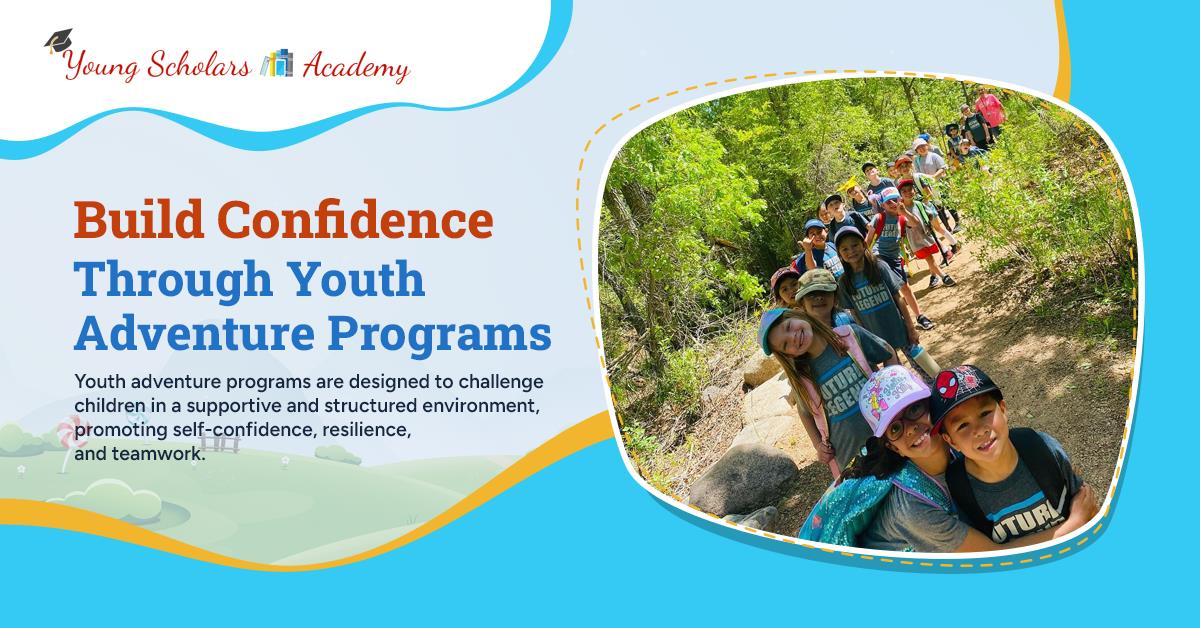
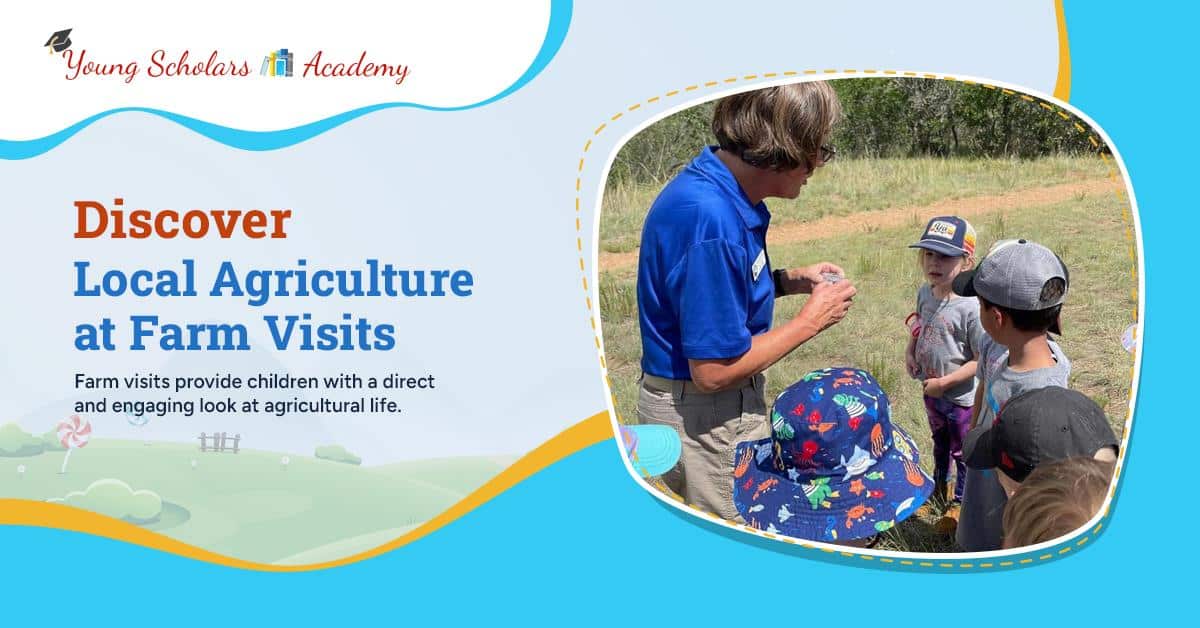
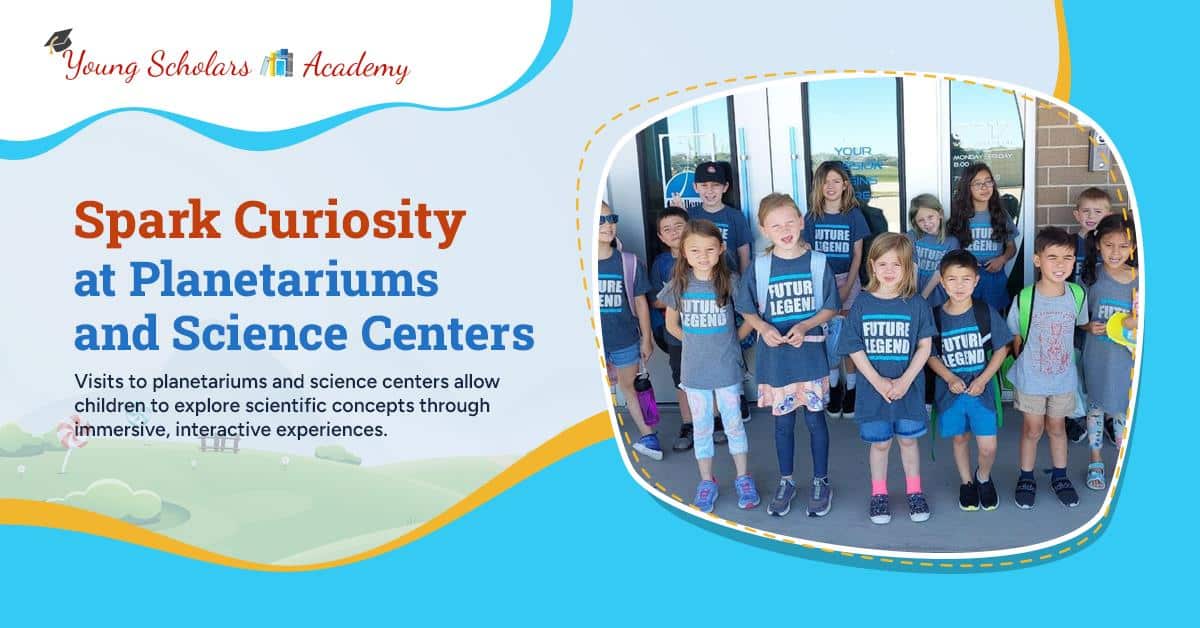
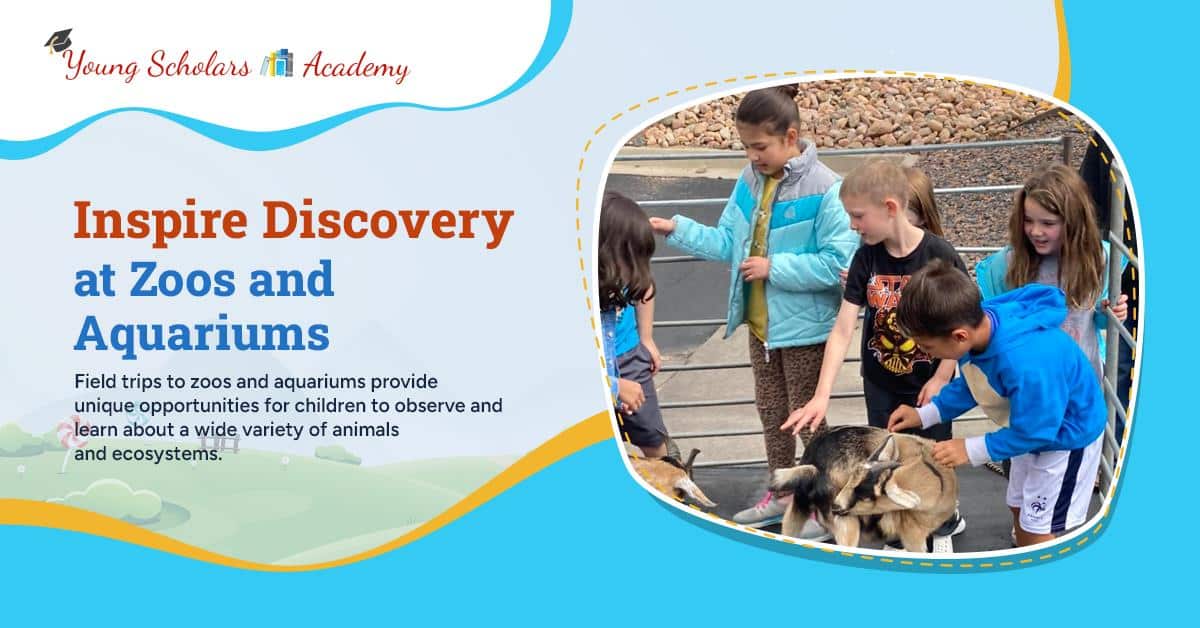
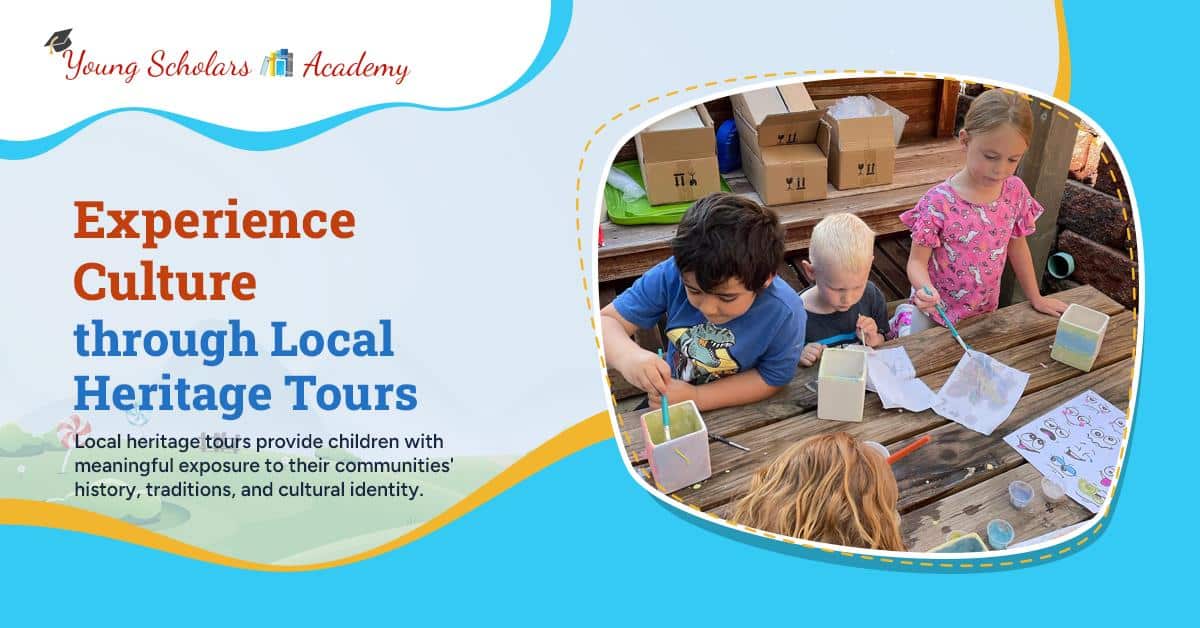
Leave a Reply